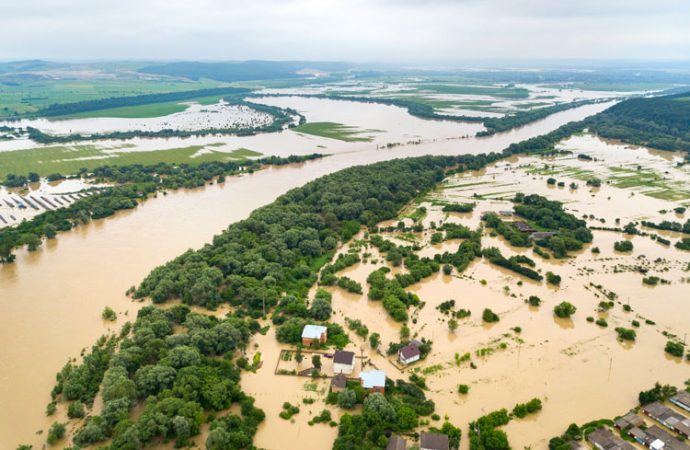Author Recent Posts Sumayya Shafique Latest posts by Sumayya Shafique (see all) IMF Deal – Will it provide economic stability for Pakistan? – August 3, 2023 A Critical Appraisal of National Security Policy and Climate Change – August 3, 2023 Pakistan’s Foreign Debt and its Current Status – July 11, 2023
Pakistan’s National Security policy and action plans primarily overlook the critical Security implications of climate change. These Security implications are not limited rather diverse and drastic. Pakistan has ranked fifth in the list of most vulnerable countries to the climate change. The Government of Pakistan has taken action to combat climate change through various policies, plans, and commitments. In order to tackle climate change, a comprehensive National Climate Change Policy (NCCP) was formulated in 2012. In addition to, the country has also ratified the Paris Agreement, an international agreement aiming at reducing global warming and Pakistan Climate Change Act was to improve climate resilience and put mitigation and adaptation measures in place.
Climate change becomes a matter of security when its consequences reach the heart of policies and measure that impact the security of state directly. For instance, flooding, diseases, far reaching impacts of epidemics and pandemics, drought, changes in duration of seasons that leads to intensified shortage of resources. In Pakistan, not only these changes directly endanger food security, human security and economic security but also impact key military sites crucial for traditional security measures. These issues run the risk of sparking climate-related conflict over scarce resources that have resulted from climate change impacts. In the immediate wake of a climatic disaster or as part of attempts to prevent future disasters, these scenarios would pose a major threat to Pakistan and have serious repercussions for any government.
The public, the nation’s infrastructure, and the economy were all severely damaged by the devastating floods that hit Pakistan in 2022. A tangible burden on the nation and its citizens is now being felt as a result of climate change due to the increase in the frequency of floods, excessive rainfall, and heatwaves. The losses are too severe from a human perspective to be measured. However, from a political standpoint, they highlight the fact that Pakistan may face existential threats due to the state’s national security architecture’s lack of a domain for climate security.
The threat of food, water, and energy insecurity was emphasized by Foreign Minister Bilawal Bhutto Zardari during his visit to the United States to attend a United Nations forum on food security. Unfortunately, it is now Pakistan’s reality rather than just a threat. This is a recipe for disaster when coupled with the nation’s persistent political instability and skyrocketing prices. All of these developments have the potential to act as catalysts, causing a migration of people from rural to urban regions as a result of the climate, as Pakistanis look for work and stable living conditions. Massive cities and urban infrastructure are already under strain from the current population levels, and this adds to that.
The case study of Denmark presents us with an ambitious climate action plan by enacting the 2020 Climate Act into law. The Climate Act establishes a short-term goal of climate neutrality by 2050 at the latest and a long-term goal of reducing Denmark’s greenhouse gas emissions by 70% compared to 1990 levels in 2030. At global level, for countries suffering from the impacts of climate change and contributors of the climate change, it presents a practical example to design coping mechanism for the consequences of climate haphazard.
In the wake of disastrous impacts of climate change throughout the world, Pentagon has carried out research to determine how susceptible its military and security infrastructure is to the effects of climate change. According to Washington Post, CIA and other top intelligence and military agencies in the world, have sent officials to collaborate with academic institutions and to obtain advanced degrees, including PhDs, in the area of climate change and its effects on national security, in order to better grasp the problem. Similarly, 70 % of Pakistan’s critical military sites were found exposed to repercussions of climate change. Despite the seriousness of the issue, Pakistani policy, debate and discourse on climate change’s security implications are still virtually lacking. To close the research gap, the government should start a program of study on climate change and security.
However, if Pakistan is serious about combating climate change and spending money on adaptation and mitigation measures, a broad framework to organize this response is required. Pakistan’s National Command and Operation Center (NCOC), which oversaw the nation’s COVID-19 reaction, serves as a recent example. A NCOC with a focus on climate change would make sure that enough funds are set aside to address the effects of climate change on the nation and that the necessary coordination takes place to foster political consensus. To address the internal effects of climate change, it would be necessary for pertinent national and provincial organizations to band together.
Climate Change in Pakistan Creates an Emergency for National Security. The social and economic stability of Pakistan is under threat from climate change, according to all major political parties. Pakistan needs to start acting “war-footing” and adopt a whole-of-government strategy to combat climate change. Also, Military organizations should also incorporate climate-related elements into their operational planning and defense-related preparations.
In conclusion, socioeconomic losses result in an increased strain on the state’s resources and security because climate change’s effects are widespread and cross-sectoral. Geopolitical rivals are no longer the lone threat to the state; instead, they are merely one of several variables that could do so. To determine the most urgent and existential challenges to Pakistan, national security must now be examined via comprehensive security and climate security frameworks.
- IMF Deal – Will it provide economic stability for Pakistan? - August 3, 2023
- A Critical Appraisal of National Security Policy and Climate Change - August 3, 2023
- Pakistan’s Foreign Debt and its Current Status - July 11, 2023






















Leave a Comment
Your email address will not be published. Required fields are marked with *